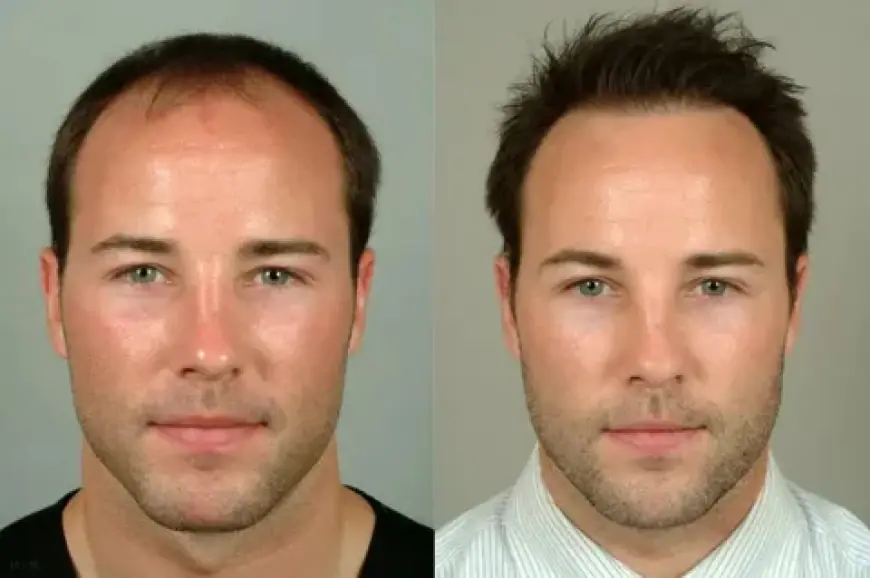10 Questions to Ask Before Your Hair Transplant in Dubai
Dubai’s hair transplant services provide a cutting-edge, permanent solution to baldness with advanced techniques such as FUE and DHI. Featuring world-class clinics, skilled surgeons, and tailored treatment plans, you can achieve natural, lasting results and regain your confidence. Whether addressing a receding hairline or thinning crown, hair transplant procedures in Dubai offer a smooth and effective path to revitalizing your look.

If you’re considering a hair transplant in Dubai, you’re about to make a life-changing decision. Hair restoration surgery has become an incredibly popular and effective solution for those suffering from hair loss or thinning. However, as with any medical procedure, choosing the right clinic, surgeon, and treatment plan is crucial for achieving the best results.
Before you commit to a hair transplant in Dubai, there are several important questions you should ask to ensure you’re fully informed and prepared. In this article, we’ll outline the 10 essential questions to ask before undergoing a hair transplant procedure in Dubai.
1. What hair transplant techniques do you offer?
Different techniques can be used for Hair Transplant in Dubai, with FUE (Follicular Unit Extraction) and DHI (Direct Hair Implantation) being the most popular. Ask your surgeon about the different methods available and their advantages. Ensure that the clinic offers the latest and most advanced technologies to achieve the most natural and permanent results.
- FUE: A minimally invasive technique that involves extracting individual hair follicles and implanting them into the thinning or balding areas.
- DHI: A more advanced technique where hair follicles are implanted directly into the scalp without the need for incisions.
2. Are you a certified and experienced hair transplant surgeon?
The expertise of the surgeon performing your hair transplant is one of the most critical factors for achieving great results. Ask about their qualifications, experience, and certification. Look for a surgeon who specializes in hair restoration and has performed numerous successful procedures. You may also want to ask for before-and-after photos of previous patients to assess the surgeon’s skills.
3. What is the cost of the procedure?
Hair transplant costs can vary significantly depending on factors such as the technique used, the number of grafts needed, and the clinic's location. Make sure to inquire about the total cost of the procedure, including consultations, medications, and post-operative care. Be cautious of clinics offering very low prices as they may compromise on quality or use outdated techniques.
4. How many grafts will I need?
The number of hair grafts required will depend on the extent of your hair loss and the areas you wish to restore. A good clinic will provide a thorough consultation to assess your hair loss pattern and recommend the ideal number of grafts needed for your desired result. Ask your surgeon to explain the estimated graft number and the expected density of the transplant.
5. What is the recovery process like?
Recovery is an essential part of the hair transplant process, and it’s important to know what to expect in the weeks following your procedure. Ask your surgeon about post-operative care, including any medications, restrictions on physical activity, and the expected timeline for hair growth. Most patients experience some swelling and scabbing in the first few days, but these symptoms typically subside as healing progresses.
6. What are the potential risks and complications?
As with any medical procedure, hair transplants carry some risks, such as infection, scarring, and unsatisfactory results. Be sure to ask about the potential risks associated with the specific technique being used, and how the clinic handles complications. A good surgeon will take time to explain the risks and ensure you fully understand the procedure before moving forward.
7. How many sessions will I need to achieve the desired results?
In some cases, one hair transplant session may not be sufficient to achieve the fullness you desire. Ask whether multiple sessions will be necessary and what the timeline would look like for additional treatments. Multiple sessions may be required for patients with significant hair loss or those seeking a very dense hairline.
8. What is the expected outcome and when will I see results?
Hair transplant results don’t appear overnight. It can take several months before you see noticeable growth as the hair follicles settle and new hair begins to grow. Ask your surgeon about the expected timeline for seeing results, and what the final outcome should look like. They should provide realistic expectations based on your individual case.
9. Do you provide post-operative care and follow-up?
Comprehensive aftercare is crucial for ensuring optimal results after your hair transplant. Ask the clinic if they provide post-operative care, including follow-up visits to monitor your progress. A good clinic will ensure you receive guidance on hair washing, scalp care, and follow-up check-ups to ensure your hair transplant is healing properly.
10. What kind of results can I expect for my specific hair loss pattern?
Hair loss varies from person to person, so it’s essential that your surgeon tailors the procedure to your unique needs. Ask about the expected results for your specific type of hair loss—whether it's a receding hairline, thinning crown, or patchy areas. Your surgeon should provide an honest and realistic view of what you can expect based on your individual hair restoration goals.
Conclusion: Be Informed Before Your Hair Transplant in Dubai
Choosing to undergo a hair transplant in Dubai is an exciting step towards restoring your hairline and confidence. However, it’s essential that you ask the right questions to ensure you choose the best clinic and the most suitable treatment for your needs. By addressing these 10 essential questions, you’ll be well on your way to making an informed decision and achieving the hair restoration results you desire.
Take your time, research clinics, consult with multiple surgeons, and feel confident about your choice. Remember, your hair transplant experience is not just about the procedure, but about long-term care and satisfaction with the results.
What's Your Reaction?
 Like
0
Like
0
 Dislike
0
Dislike
0
 Love
0
Love
0
 Funny
0
Funny
0
 Angry
0
Angry
0
 Sad
0
Sad
0
 Wow
0
Wow
0




















































